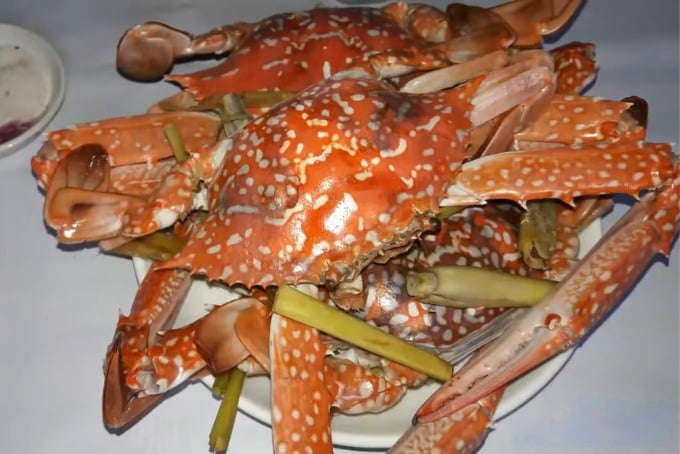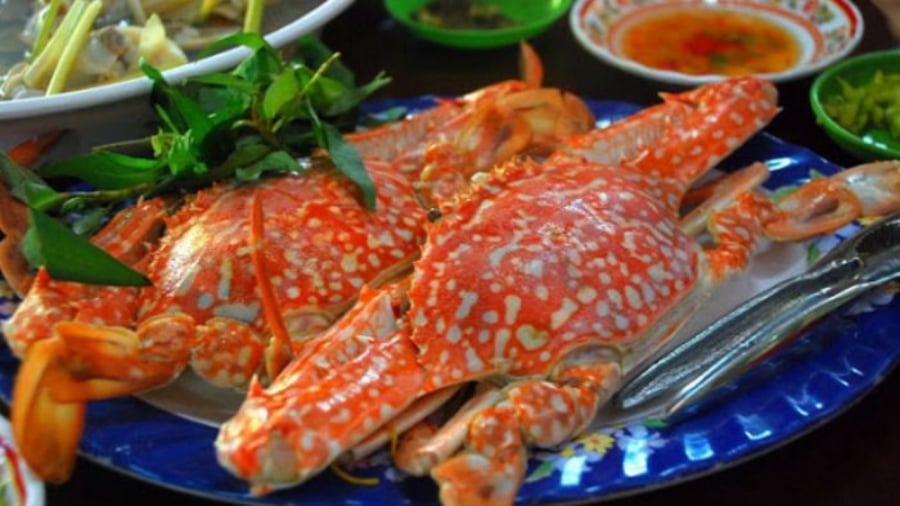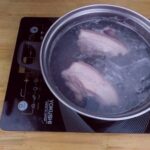You can easily cook delicious crab or shrimp at home. However, many people wonder why their cooked crab or shrimp doesn’t taste as good as it could, or why the meat is not as sweet as expected, or even why the crab or shrimp loses its claws during cooking. So, what can be done to improve this?

Should you use hot or cold water to boil crab and shrimp? Although boiling these seafood dishes is simple, many people are unsure why their final product doesn’t taste quite right. The meat may not be as sweet, and the crab or shrimp might even lose its claws during cooking. According to experienced chefs, the likely culprit is the use of inappropriate water temperature.
So, what’s the answer? When placing the crab or shrimp in the pot, you should always start with cold water and then turn on the heat. Using cold water allows the crab or shrimp to cook gradually, retaining its natural sweetness. This results in a more delicious and satisfying dish when you finally sit down to enjoy it.
On the other hand, if you use hot water, the sudden increase in temperature can cause uneven cooking, leading to a unpleasant odor. It can also cause the sweet juices inside the crab or shrimp to flow out, reducing the overall taste experience.
Additionally, boiling crab or shrimp in hot water can increase the likelihood of claw loss.
What is the correct way to boil crab and shrimp?
To ensure your boiled crab and shrimp turn out perfectly, start by purchasing live and fresh seafood. Fresh crab and shrimp are usually very active and agile.
Before boiling, it’s a good idea to chill the crab and shrimp in the freezer for 15-20 minutes or soak them in ice water. This will stun them, preventing any movement and reducing the chances of claw loss during boiling.
When boiling, leave a small gap in the pot lid to avoid sudden temperature changes, which can cause the crab or shrimp to experience heat shock and lose their claws.

How to eliminate the fishy smell from crab and shrimp: Crab and shrimp can have a distinct fishy odor, but you can effectively neutralize it using white wine and fresh ginger:
– Grate the ginger. For every kilogram of crab or shrimp, add a spoonful of grated ginger along with other spices (according to your preference).
– Alternatively, you can use beer and lemongrass for steaming, which is also very effective in removing the fishy smell.
Master Chef’s Secret: Plunge the Chicken in a Broth of Bones and Marrow for a Succulent, Tender Feast
By simply adding an extra step to your boiled chicken preparation, you can ensure evenly cooked, moist, and perfectly tender meat. After boiling, let the chicken rest and soak in the broth. This process ensures that the meat is thoroughly cooked, preventing any red bones or raw meat surprises. It’s a simple yet effective technique to guarantee a delicious and perfectly prepared chicken dish every time.
The Heart of Ha Long’s Seafood Delights: A Night-Time Market Adventure
The Cao Xanh Night Fish Market is not just a hub for seafood trade but also a vibrant reflection of the coastal fishermen’s hardworking lifestyle. The market’s bustling atmosphere and the diverse array of fresh seafood on offer cater to the most discerning palates, satisfying the cravings of seafood connoisseurs.
The Magic of Words: Crafting a Captivating Headline
“Slash Your Electricity Bill by Half: 5 Tips for Efficient Water Heater Usage”
Introducing the all-new, ultra-powerful tankless water heater – a revolutionary appliance that promises endless hot water on demand. But with great power comes great electrical demand. So, if you’re looking to cut back on your energy bills, it’s time to pay attention to this often-overlooked energy guzzler.



































